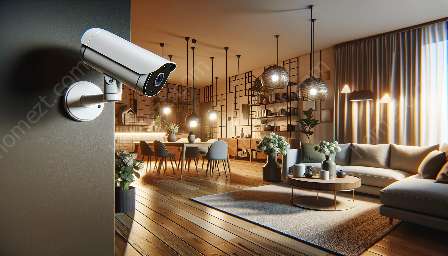Home security cameras are crucial components of a comprehensive home safety and security system. They provide a means to monitor and protect your home when you’re not there, serving as a deterrent to would-be intruders and offering valuable footage in the event of a security breach. There are various types of home security cameras available, each with its own set of features and benefits. Understanding the different options can help you make an informed decision about the best security cameras for your home.
1. Indoor Security Cameras
Indoor security cameras are designed to monitor the interior of your home. They are typically compact and discreet, making them suitable for placement in various areas such as living rooms, bedrooms, and hallways. These cameras may offer features such as two-way audio, motion detection, and night vision, providing comprehensive coverage of your indoor spaces. Indoor security cameras are ideal for keeping an eye on children, pets, or caregivers, and they can also help to deter and detect intruders.
2. Outdoor Security Cameras
Outdoor security cameras are weather-resistant and designed to withstand the elements. They are commonly used to monitor the perimeter of a property, including driveways, entryways, and outdoor living spaces. Outdoor cameras often come with advanced features such as high-definition recording, wide-angle lenses, and customizable motion detection zones. These cameras help to enhance the overall security of your home by providing visibility into outdoor areas and deterring potential trespassers.
3. Wireless Security Cameras
Wireless security cameras offer flexibility and ease of installation. They connect to your home's Wi-Fi network, eliminating the need for complex wiring and allowing for placement in various locations. Wireless cameras are popular for DIY home security systems and can be easily repositioned for optimal coverage. Many wireless cameras also offer cloud storage options for convenient access to video footage from anywhere.
4. Wired Security Cameras
Wired security cameras are hardwired into the home's electrical system and connected to a recording device or network video recorder (NVR). They offer a reliable and continuous power source, making them suitable for long-term surveillance needs. Wired cameras may provide higher resolution and more extensive coverage compared to wireless models, and they are generally considered to be more secure against hacking or signal interference.
5. PTZ Security Cameras
PTZ (pan-tilt-zoom) cameras offer enhanced flexibility in monitoring and surveillance. These cameras can be remotely controlled to pan, tilt, and zoom, allowing for comprehensive coverage of a larger area. PTZ cameras are commonly used in commercial and larger residential properties, offering the ability to track and zoom in on specific objects or movements. With their advanced features, PTZ cameras provide an added layer of security and monitoring capability.
6. Smart Security Cameras
Smart security cameras integrate with home automation systems and offer advanced features such as facial recognition, voice control, and integrations with smart home devices. These cameras are designed to provide seamless connectivity and intelligent monitoring, allowing homeowners to receive real-time alerts and access video feeds from their smartphones or other devices. Smart security cameras contribute to a comprehensive smart home security ecosystem, enhancing convenience and peace of mind.
Conclusion
Choosing the right home security cameras is essential for ensuring the safety and security of your home and loved ones. By understanding the features, benefits, and best use cases for different types of security cameras, you can make an informed decision based on your specific needs and preferences. Whether you opt for indoor, outdoor, wireless, wired, PTZ, or smart security cameras, incorporating these devices into your home security system can provide invaluable peace of mind and protection.
When considering home safety & security, it's important to assess the potential value and advantages of each type of security camera, taking into account factors such as the property layout, surveillance requirements, and integration with existing security systems. By taking a comprehensive approach to home safety and security, including the selection of the right home security cameras, homeowners can create a robust defense against potential threats and enhance the overall safety and protection of their homes.


